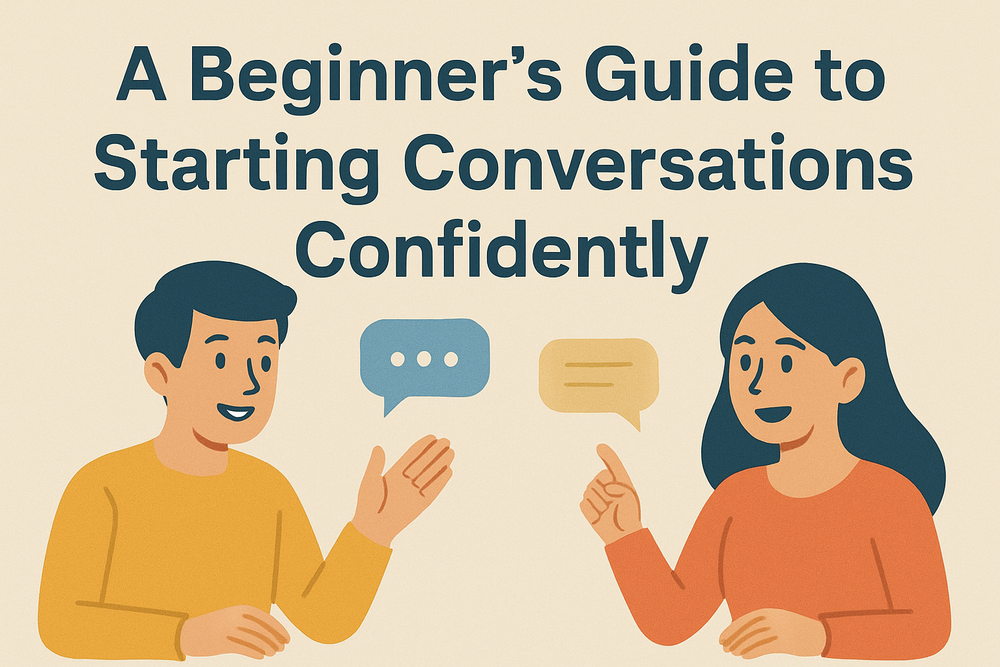Starting conversations confidently is a skill that can significantly enhance your personal and professional life. While some people appear naturally skilled at initiating dialogue, it is a skill that can be learned and refined with practice and awareness. Engaging effectively with others not only strengthens relationships but also opens doors to opportunities that might otherwise remain closed.
One effective way to practice this skill is through stranger chat https://personapp.io platforms, where you can connect with new people in a safe and structured environment. These platforms provide a low-pressure setting to experiment with conversation starters, practice active listening, and refine your interpersonal communication skills. According to research by the American Psychological Association, practicing social interactions regularly can improve self-confidence and reduce social anxiety (APA.org).
Understanding the Psychology of Conversation
Before diving into practical tips, it’s helpful to understand what drives human interaction. Conversations are a means of exchanging ideas, building trust, and establishing social bonds. Psychologists emphasize the importance of body language, tone, and empathy in creating meaningful connections. Even online, your choice of words, responsiveness, and attentiveness significantly affect how others perceive you.
Confidence in conversation often stems from preparation and a positive mindset. Being aware of your goals for the interaction—whether to learn, share, or simply engage—can make starting a conversation feel more purposeful. Research published in Harvard Business Review highlights that self-awareness and empathy are critical factors in effective communication (HBR.org).
Practical Tips for Starting Conversations
1. Use Open-Ended Questions
Open-ended questions invite detailed responses rather than simple “yes” or “no” answers. For instance, asking, “What hobbies do you enjoy?” encourages more extensive dialogue compared to, “Do you like reading?” These questions not only keep the conversation flowing but also show genuine interest in the other person’s experiences.
2. Share a Relevant Story
Sharing a short personal story or anecdote can break the ice and create common ground. For example, mentioning a recent experience related to a shared interest helps establish rapport quickly. Stories are memorable and make interactions more engaging.
3. Pay Attention to Non-Verbal Cues
Even in online settings, tone, timing, and responsiveness are crucial. Emoticons or well-placed punctuation can convey friendliness and tone. For in-person conversations, maintaining eye contact and a relaxed posture signals openness and confidence.
4. Practice Active Listening
Active listening involves fully focusing on the other person’s words, responding thoughtfully, and reflecting their points when appropriate. This skill not only builds trust but also encourages a more dynamic and enjoyable conversation. Experts suggest paraphrasing and asking follow-up questions to demonstrate genuine engagement.
5. Manage Anxiety and Overthinking
Feeling nervous is natural when approaching new people. Mindfulness techniques, such as deep breathing and visualization, can help calm nerves. Remind yourself that most people are receptive and appreciative of genuine engagement. Over time, consistent practice reduces anxiety and improves overall communication skills.
Leveraging Online Platforms Safely
Online platforms like stranger chat allow beginners to practice conversations without the pressures of face-to-face interactions. However, it is essential to follow safety guidelines, including protecting personal information, avoiding suspicious links, and reporting inappropriate behavior. According to the National Cybersecurity Alliance, maintaining online privacy and security ensures a safe digital interaction environment (staysafeonline.org).
Building Long-Term Communication Skills
Starting conversations confidently is not just about the first interaction; it is about cultivating ongoing social skills. Regular practice, reflection, and feedback help refine your ability to engage authentically. Joining workshops, discussion groups, or social clubs can further enhance confidence and interpersonal abilities.
By integrating these strategies and utilizing platforms to practice safely, anyone can develop the skills to initiate and sustain meaningful conversations. Over time, this confidence will extend beyond casual interactions, enhancing networking opportunities, friendships, and professional relationships.



